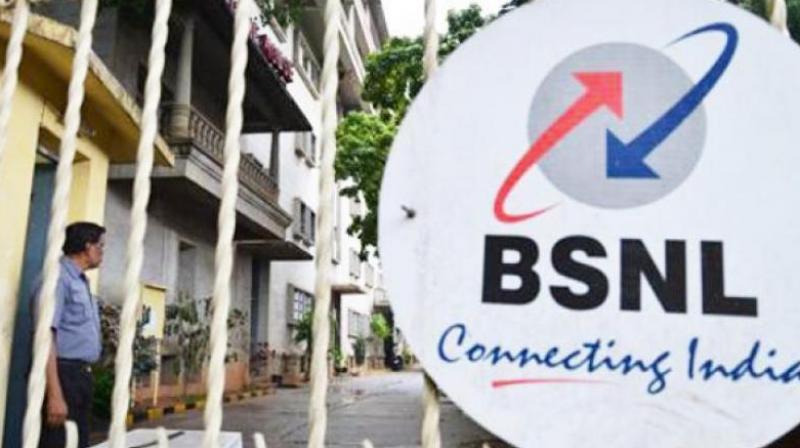BSNL faces huge technical, policy, low motivation challenge: IIM-A report
The report was hard on BSNL for its lethargic approach for utilising its available 4G spectrum.

New Delhi: The IIM Ahemdabad report on BSNL revival has listed some of the chllenges faced by BSNL varying from policy to organisational and made some casting remarks on the PSUs state of affiars.
The report observed the PSU lacking severly on the technological/market fronts: On technological and market evolution of new technologies like 5G, IoT , BSNL has significant challenges.
"These include the rapid evolution of technology (5G, IOT), fast evolving consumer needs of data consumption, changing demographics patterns and increasing role of content in driving businesses. Such a combination of technology/market characteristics requires organizations to have agility, build partnerships, reduce costs, and be innovative. On all these dimensions BSNL has significant challenges", the interim report said.
The report notes that since BSNL is 100 per cent government owned, it is often subject to the delays and decisions made by the government. Elaborating it, the report said while the government has transferred its liabilities (workforce) to BSNL, the transfer of land and building assets are yet to be completed. There seems to be a lot of confusion surrounding the ownership of the land and building assets of BSNL.
The report was hard on BSNL for its lethargic approach for utilising its available 4G spectrum.
While BSNL was given spectrum in the 2500 MHz band (a 4G band), the ecosystem was not well developed at that point in time. BSNL wanted to return that spectrum. It is not clear why BSNL did not opt to use its 2100 MHz spectrum for 4G. The ecosystem for this band is well developed and is currently being used by various private operator.
While BSNL could claim delays in 4G spectrum allocation by DoT, effectively, it has shown little initiative in using its existing spectrum for 4G. This indicates a lack of proactive approach to competition", the report said.
The report makes a scathing attack on BSNL’s performance management and promotion policy.
“Even after about 19 years of existence, BSNL does not have well thought policy. The performance management system in BSNL is quite superficial. The promotion happens in a time bound manner and there is no recognisation of merit in the system. There is lack of professional leadership in the organization. Today mediocre people are holding important leadership in the organization, it said.
The IIM-A report also highlights the organizational impediments specific to the system and processes adopted by BSNL which are –delays in procurement due to its inefficiencies and the need to follow guidelines for public procurements, centralization of deployment of tariff plans leading to inflexibility in service offerings ,poor linakge of performance with incentives, frequent transfers. The larger challenges are failure in building partnerships and marketing orientation.
As a policy environment challenge, BSNL operates as a single entity under UASL licence and for this pays 8 per cent revenue share from revenues from all activities under the UAS licence. This makes BSNL bid for projects higher and turns it incompetitive whereas other operators have set up subsidiaries that can undertake such projects and thus do not pay any revenue share, elaborated the report and added the PSU ;lacks a separate project unit.
BSNL has a large legacy workforce of 1.71 lakh and 70 per cent of them came to BSNL from Dot at the time of formation of BSNL in 2000. Their average age is 55 years and they lack interest in improvement of services, and even lack technical knowledge, the IIM-A report said.
Coming down heavily on the lack of customer orientation, the interim report said there is tremendous demotivation in the BSNL workforce due to the poor performance of the PSU, ill-thought policies, lack of commitment of the leadership, aging workforce, non-implementation of 3rd PRC . This lack of enthusiasm has transferred into poor customer service leading to subscriber disconnection.
The other challenge is the PSU has no clear-cut policy on shutting down low-subscriber numbered small exchanges which to be operational also needs to maintained and operated leading to wasteful expenditures.

